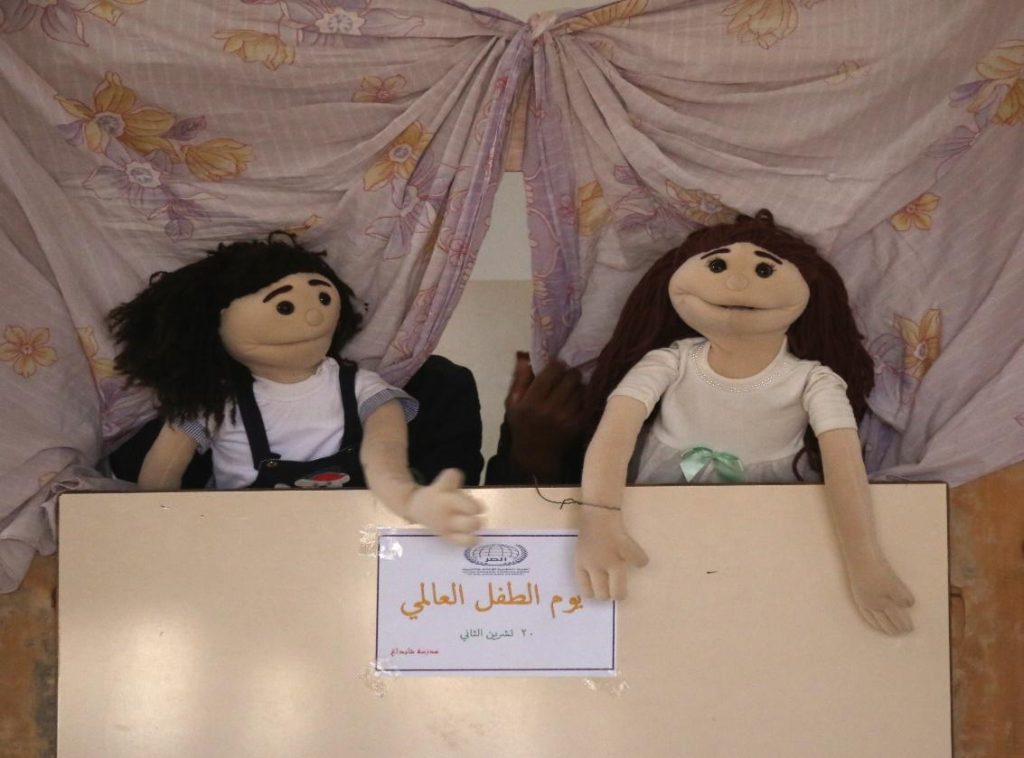Syria, officially known as the Syrian Arab Republic, is situated in Western Asia, in the Eastern Mediterranean and the Levant. The crisis in the country has taken a devastating toll on education, particularly for children. The number of children that have never enrolled in school is increasing, leading to difficulties in enrolling and adjusting to formal schooling as they get older, which impacts their longer-term development and opportunities. Those who do enroll face numerous difficulties, including overcrowded classrooms, psychological impacts resulting from past experiences, curricula and language barriers, and a shortage of essential learning materials. This leads to an increased risk of dropping out, with almost one-third of enrolled children not completing primary school.
The combination of displacement, lack of learning spaces, economic hardship, and protection concerns remain obstacles and barriers to fulfilling the right to education for children in Syria. Human Concern International (HCI), a global charity founded in Canada, partnered with the local organization International Association for Relief & Development (ONSUR) in Syria to quickly respond to the education needs of crisis-affected populations in Tal Abyad district of Ar-Raqqa Governorate. A rapid needs assessment conducted by the local partner highlighted that around 7,500 children and youth in the district are without access to basic education.
HCI’s intervention, an education project, provides children and youth with access to quality education in a protective environment that prioritizes their physical and emotional well-being. The project design addresses the various gaps and needs of the children and youth with two primary components:
1. Rehabilitation of Schools: Restore and renovate to ensure the schools are equipped with equipment and facilities to promote safe and inclusive education. This includes teacher training initiatives and the provision of separate toilets with clean water for boys and girls.

2. Non-formal Education Program: Aims to ensure that children who have missed out on education can catch up and successfully enroll in formal education. Keeping in mind the physical and emotional needs of children, the curriculum is designed to facilitate psychosocial and game-based activities. These activities support cognitive development and foster good peer relationships and social skills, improve self-esteem, and self-worth, and help restore a sense of normalcy and stability.

HCI is happy to share that three schools were rehabilitated and are fully functional, providing an environment for 121 children to complete their non-formal education. Along with the provision of compulsory curriculum (Arabic, English, Turkish, and Mathematics) and stationary, they were also given psychological support and engaged in recreational activities such as art class, tree planting and stage shows. With all 121 students successfully passing the recent examinations, they are now being enrolled in the Syrian formal education system.

One of the children, Zara*, was forced to drop out of school due to displacement. Later she was diagnosed with hair disease which led to the partial fall of her hair that kept her away from school during the treatment journey. She never attended any school after that. She was then enrolled in one of HCI’s funded schools for non-formal education. Her teachers encouraged her to get involved in educational activities and psychological support sessions to enhance her self-confidence and remove the negative psychological impact that the disease had on her. Over time, she became one of the most self-confident and committed students. Zara* says, “I never imagined that I would go back to school, I was ashamed of my illness and now after returning to school, I feel strong. I can stand in front of all people without being shy or ashamed of who I am. When I grow up, I want to become a teacher to help the children as my teachers did with me, I thank them all.”
HCI will continue its work with their partner in Syria to support many other children on their academic journey to create a sustainable and equitable educational environment.
Published:
March 16, 2023
Author:
Human Concern International (HCI)
Categories:
SHARE THIS POST: